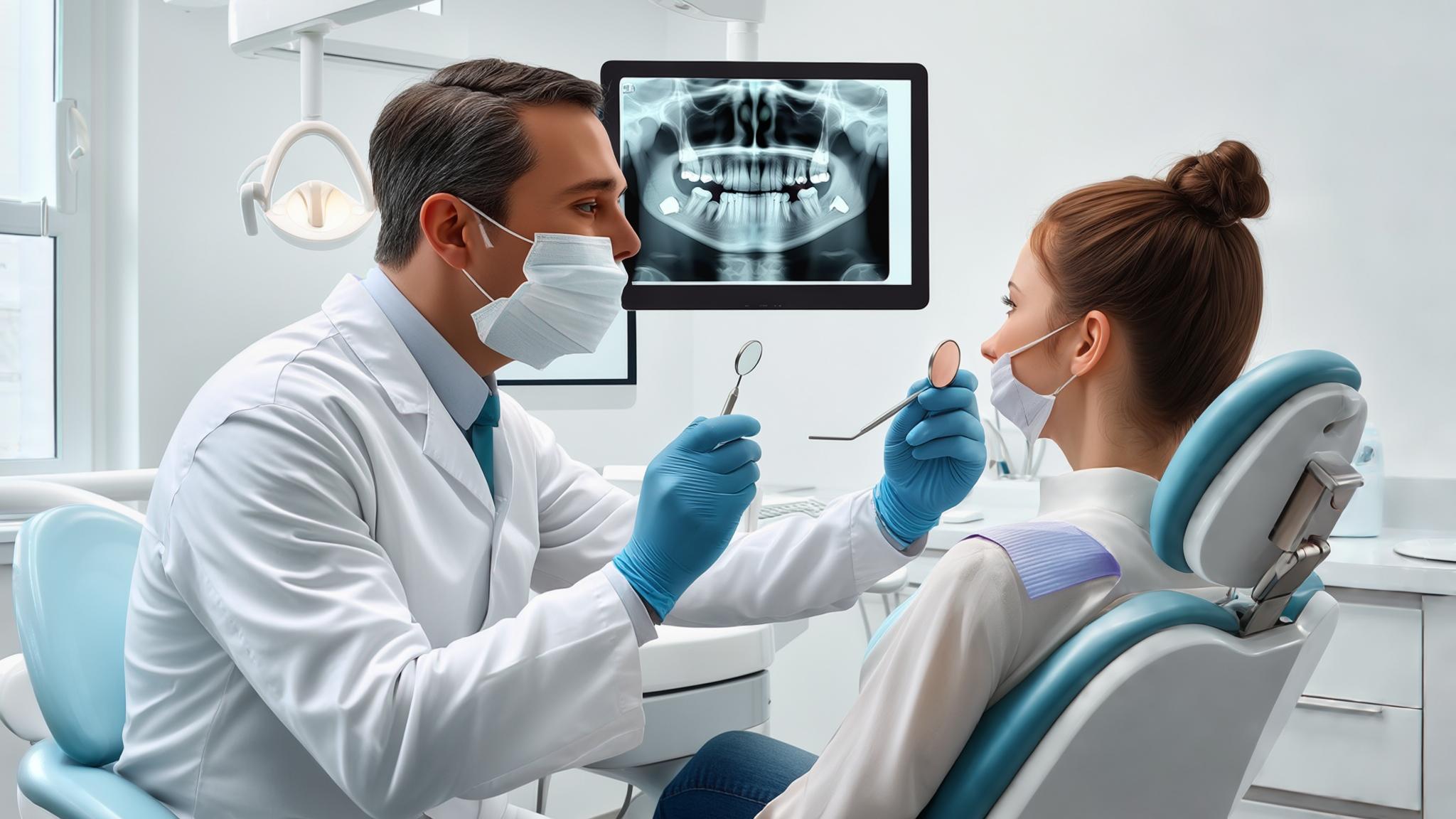Introduction
Dental check-ups are an essential part of maintaining good oral health. They involve regular visits to your dentist to ensure that your teeth, gums, and mouth are in good condition. Regular dental care is crucial because it helps prevent dental problems before they become serious, saving you time, discomfort, and money in the long run. This article aims to clarify the differences between routine dental exams and specialist visits, helping you understand when each type of visit is necessary.
Routine Dental Exams
Definition and Overview
A routine dental exam is a standard visit to your general dentist, typically scheduled every six months. These exams are crucial for maintaining oral health and preventing issues from developing.
Components of a Routine Dental Exam
- Visual Inspection: Your dentist will visually inspect your teeth and gums for signs of decay, gum disease, or other issues.
- X-rays: These may be taken to get a closer look at your teeth and jawbone, helping to detect problems not visible to the naked eye.
- Cleaning and Polishing: A dental hygienist will clean your teeth to remove plaque and tartar, followed by polishing to make your teeth shine.
- Oral Health Education: Your dentist or hygienist will provide advice on maintaining oral hygiene at home.
Benefits of Routine Dental Exams
- Early Detection: Problems like cavities or gum disease can be caught early, making them easier to treat.
- Prevention: Regular cleanings help prevent oral diseases and maintain healthy teeth.
- Overall Health: Good oral health contributes to your overall well-being, as many systemic diseases have oral manifestations.
Specialist Visits
Definition and Overview
A specialist visit involves seeing a dentist with advanced training in a specific area. There are several types of dental specialists, such as:
- Orthodontists: Focus on aligning teeth and jaws.
- Endodontists: Specialize in root canal treatments.
- Periodontists: Treat gum disease.
- Oral Surgeons: Perform complex surgical procedures.
Reasons for Visiting a Specialist
- Complex Dental Issues: Such as root canals or severe gum disease.
- Orthodontic Treatment: For issues like misaligned teeth.
- Surgical Interventions: Such as wisdom tooth removal or jaw surgery.
Benefits of Specialist Visits
- Expertise: Specialists have advanced training and experience in their field.
- Advanced Treatments: They offer treatments that general dentists may not provide.
- Improved Outcomes: For complex cases, seeing a specialist can lead to better results.
Comparing Routine Dental Exams and Specialist Visits
Key Differences
- Purpose: Routine exams focus on prevention, while specialist visits address specific issues.
- Procedures: Routine exams include cleanings and check-ups, whereas specialists perform advanced procedures.
- Experience: Specialists provide targeted care in a more focused setting.
When to See a Specialist
Sometimes, a routine exam may reveal issues that require specialized care. Your dentist will refer you to a specialist if needed.
Understanding Your Dental Needs
Recognizing Signs
- Persistent Pain: Could indicate a need for a root canal or other treatment.
- Swelling or Bleeding Gums: May require periodontal care.
- Misalignment: Orthodontic evaluation might be necessary.
Communicating with Your Dentist
Discuss any concerns during your routine exams. Ask questions about potential referrals and treatments.
Conclusion
Both routine dental exams and specialist visits are vital for maintaining oral health. Prioritize your dental care to prevent issues and ensure your smile stays healthy. Being proactive about oral care is one of the best investments you can make in your overall health.
References
- American Dental Association (ADA) guidelines on routine dental care
- National Institute of Dental and Craniofacial Research (NIDCR) resources on dental health
- Peer-reviewed articles on the benefits of specialist dental care

